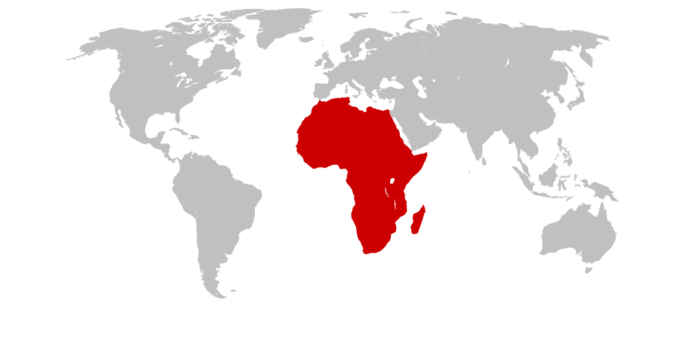Cryptocurrency has taken Africa by storm thanks to recent regulatory changes across the continent.
Since its introduction in 2009, Bitcoin was the first cryptocurrency to be used worldwide. It’s taken a few years to gain acceptance, but as of 2023, the Middle East and North African (MENA) countries make up the sixth-largest crypto economy in the world, while widespread adoption of crypto has brought better banking options to many more across Africa.
In this article, we explore how crypto has changed African economies and the lives of everyday Africans.
Expansion of Crypto
Although many people were skeptical of cryptocurrency when it was first introduced, adopting the new digital currency has picked up speed in recent years. Today, more than 425 million people worldwide use one of the many cryptocurrencies available.
As of 2021, the World Bank estimates that almost 45% of people living in Sub-Saharan Africa—including the citizens of East, West, Southern, and Central Africa—had no access to formal financial services such as bank accounts, credit lines, or savings portfolios. Today, almost 8.5% of the population in Kenya uses crypto, while in Nigeria, an estimated 47% of residents use cryptocurrencies.
The increasing use of crypto is a result of regulatory change—in particular, the 2022 decision by the Central African Republic to adopt Bitcoin as a form of legal tender.
Among MENA countries, the UAE stands out for its new innovation-promoting regulations that have effectively turned it into a crypto hub. Meanwhile, Turkey has started using cryptocurrency to fight local inflation, taking fourth place in cryptocurrency transaction volume in 2023 after the US, UK, and India.
This expansion of crypto has brought both positive and negative outcomes for the people living in affected regions.
Positive Changes
The adoption of crypto across African countries has had significant positive effects for locals:
More Access to Financial Transaction Services
An estimated 46% of Sub-Saharan populations own mobile phones and have internet access, which enables them to use crypto services. Access to these services allows residents in rural areas to perform financial transactions that they may not be otherwise able to do due to geographical or economic challenges.
Being able to use crypto services has dramatically reduced the number of unbanked individuals on the continent and has provided secure ways to send and receive money using digital mediums.
More Security
Cryptocurrencies use a decentralized ledger called a blockchain to lock transactions in place once they are written to the chain. Once locked, transactions can’t be altered, and information about the senders and receivers is difficult or impossible to retrieve. These benefits offer more security than traditional fiat currency banking systems—which has proven helpful for African businesses and individuals alike. The blockchain can protect everything from large financial transactions to everyday spending on shopping or online entertainment you’d find on sites like casinos.com.
On an individual level, African residents can feel more secure in their crypto transactions compared to using cash, which was the norm before the expansion. Cash transactions held significant risk due to theft and crime (which saw an increase of 5.3% in 2021) and the misplacement of money.
Economical Transactions
Traditional banking comes with a fee—sometimes a rather large one. These fees can discourage large businesses and individuals from using traditional banks. Moving large amounts of money could incur significant fees over time for firms like the large tech startups in MENA. Meanwhile, individuals may be charged unreasonably high fees for their smaller everyday transactions.
In this climate, it’s no surprise that crypto has taken off. Crypto transactions charge little to no fees depending on the wallet and cryptocurrency used, which has attracted many users who previously relied on traditional banking for a hefty price and those who relied on cash transactions to avoid banking fees.
Inflation Alternative
Like many parts of the world, countries across Africa have been experiencing very high inflation rates. In Turkey, inflation hit nearly 65% by the end of 2023, while in Zimbabwe, inflation has reached more than 170%—well above affordability for most people.
Because crypto is not linked to a country’s primary currency, it is not affected by local inflation. This has made it highly appealing to many despite its well-known volatility.
Negative Changes
Nothing is perfect, and cryptocurrencies have also brought some negative outcomes to the African countries that have adopted them.
Complication
A major challenge with crypto is that it can be complicated for those who are not technologically proficient or illiterate. People opting to use crypto without proper knowledge of how to do so can easily fall victim to scam artists or fraudsters. Unfortunately, the people most often hurt by this are older generations and rural residents who can least afford it.
The difficulty of using crypto also means that those who benefit most from crypto tend to be wealthy individuals and entities that can afford to hire experts to manage their cryptocurrency. This means that the positive outcomes offered by crypto are not always available equally to all Africans.
Regulation
Even though many African countries have begun working on regulations to ensure that cryptocurrency is safe to use and has some rules and limitations, there still needs to be more legal control over crypto since it is currently lacking compared to traditional banking and currencies.
Since crypto transactions can hide most information about senders and receivers, nefarious financial activity is difficult to trace. This allows scammers to operate in ways they would not be able to use traditional money systems, which unfortunately puts the most financially vulnerable at even greater risk.
Conclusion
The advent of cryptocurrency in Africa has had a significant effect on countries’ economies and Africans’ everyday lives. For formerly unbanked people, crypto ensures their money is safe and lets them deal with others securely and economically. For big businesses, crypto has opened a world of opportunity to finance new and exciting ventures.
However, with increasing regulation limiting transactions and difficulty controlling those who prey on the vulnerable, it’s unclear whether these positive effects will remain in the long run. For now, however, crypto is set to continue its exponential growth on the continent.
































































